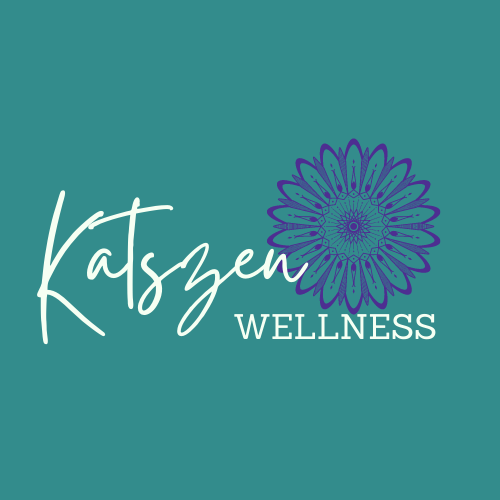Massage and the Nervous System
When you think about massage therapy, often you think about how your sore muscles will be provided with relief from the repetitive tasks that you take on in a day, whether it’s sitting at a desk, standing on your feet, or helping to manage other physical conditions. And as these benefits will leave you feeling pretty good post-massage, we often don’t think about the physiological reason for why we have a euphoric, ultra relaxed feeling for hours or days post massage. This euphoric state is due to massage impacting your nervous system positively by increasing your feel-good hormones and downregulating your stress hormones. Studies show that even after two weeks post-massage, cortisol and norepinephrine levels are significantly decreased (Lee, et. al, 2011).
The Value of Touch
Touch is an important aspect of human’s ability to thrive. It encourages positive social interactions and has been shown to help buffer stress and has calming effects (Eckstein, et. al, 2020). Post pandemic, work-from-home, mindful distance, and social media have created a world where we are experiencing fewer face-to-face interactions, and less opportunities for touch and connection. Less human connection and increased exposure to a world filled with chaos and uncertainty leads to increased stress.
Impact of Chronic Stress
Cortisol and norepinephrine are important hormones that are a part of your sympathetic nervous system (your fight-or flight response or your body’s alert system). It helps you wake in the morning, and it also helps you respond to danger. But when you have elevated levels over time (chronic stress), these hormones impact the gut-brain axis and are reported to cause systemic inflammation and gut dysbiosis and increases in proinflammatory cytokines, causing further dysregulation to the immune system (Perelli, et. al, 2024) which may leave you managing other conditions like cardiovascular diseases, diabetes, mental health disorders, and auto-immune conditions (Mariotti, 2015). Elevated stress hormones, over time, can cause symptoms of depression and other mood disorders, with additional correlation between major depression disorders and a 60% increased risk of developing Type 2 Diabetes. (Perelli, et. al, 2024)
The Feel-Good Hormones
Serotonin, oxytocin, endorphins, and dopamine are “feel good” hormones with serotonin being responsible for mood, sleep, digestion, and memory and your ability to learn. Oxytocin is the “love” hormone and aids in promoting trust, empathy and bonding, which can be increased through the means of physical touch, such as massage (Raypole, 2022). Endorphins help to alleviate pain, improve mood, and manage stress by regulating the release of cortisol. Lastly, dopamine is your “Reward center” and is released during pleasurable experiences like achieving goals, sex, eating, and touch.
How Does Massage Help Good/ Stress Hormones?
No, massage therapy alone cannot fix any of these chronic stress conditions, but it can aid in alleviating symptoms of many conditions, including anxiety, depression, and inflammatory responses by helping to decrease stress hormones and increasing happy hormones like serotonin, endorphins, dopamine, and oxytocin. In a study published by the International Journal of Neuroscience, recipients of massage realized an average of a 31% decrease in cortisol, and 28% increase in serotonin and a 31% increase in dopamine (Field, et. al, 2009)
If your body is stuck in sympathetic (fight or flight), massage can help you relax enough to shift back to a more natural and desired parasympathetic state of being (Meier, et. al, 2020). Ideally, the more frequently we can shift back into a relaxed state of being, the more we can balance our fight-or-flight response and better manage our stress.
Other Ways to Manage Stress
Massage is a great way to intentionally give yourself a dedicated hour (or more) to bring awareness back into your body, regulate your breathing, and become more centered while bringing attention to your muscle aches and pains, but there are many other ways to help regulate your stress response.
1. Meditation
2. Sunshine exposure
3. Exercise
4. Socializing with Friends
5. Sleep
6. Listen to and Dance to Music
7. Eating nutrient-dense food
Dopamine, 2025. Retrieved from: https://my.clevelandclinic.org/health/articles/22581-dopamine
Eckstein, M., Mamaev, I., Ditzen, B., & Sailer, U. (2020). Calming Effects of Touch in Human, Animal, and Robotic Interaction-Scientific State-of-the-Art and Technical Advances. Frontiers in psychiatry, 11, 555058. https://doi.org/10.3389/fpsyt.2020.555058
Field, T., Hernandez-Reif, M., Diego, M., Schanberg, S., & Kuhn, C. (2005). Cortisol decreases and serotonin and dopamine increase following massage therapy. The International journal of neuroscience, 115(10), 1397–1413. https://doi.org/10.1080/00207450590956459
Lee YH, Park BN, Kim SH. The effects of heat and massage application on autonomic nervous system. Yonsei Med J. 2011 Nov;52(6):982-9. doi: 10.3349/ymj.2011.52.6.982. PMID: 22028164; PMCID: PMC3220246.
Mariotti A. (2015). The effects of chronic stress on health: new insights into the molecular mechanisms of brain-body communication. Future science OA, 1(3), FSO23. https://doi.org/10.4155/fso.15.21
Maria Meier, Eva Unternaehrer, Stephanie J. Dimitroff, Annika B. E. Benz, Ulrike U. Bentele, Sabine M. Schorpp, Maya Wenzel, Jens C. Pruessner. Standardized massage interventions as protocols for the induction of psychophysiological relaxation in the laboratory: a block randomized, controlled trial. Scientific Reports, 2020; 10 (1) DOI: 10.1038/s41598-020-71173-w
Perrelli, M., Goparaju, P., Postolache, T. T., del Bosque-Plata, L., & Gragnoli, C. (2024). Stress and the CRH System, Norepinephrine, Depression, and Type 2 Diabetes. Biomedicines, 12(6), 1187. https://doi.org/10.3390/biomedicines12061187
Raypole, C. (2022). How to Hack your Hormones for a Better Mood. Healthline. Retrieved from https://www.healthline.com/health/happy-hormone#:~:text=Serotonin%3A%20This%20hormone%20and%20neurotransmitter,and%20strong%20parent%2Dchild%20bonding.
University of Konstanz. "Ten minutes of massage or rest will help your body fight stress." ScienceDaily. ScienceDaily, 18 September 2020. <www.sciencedaily.com/releases/2020/09/200918104305.htm>.


